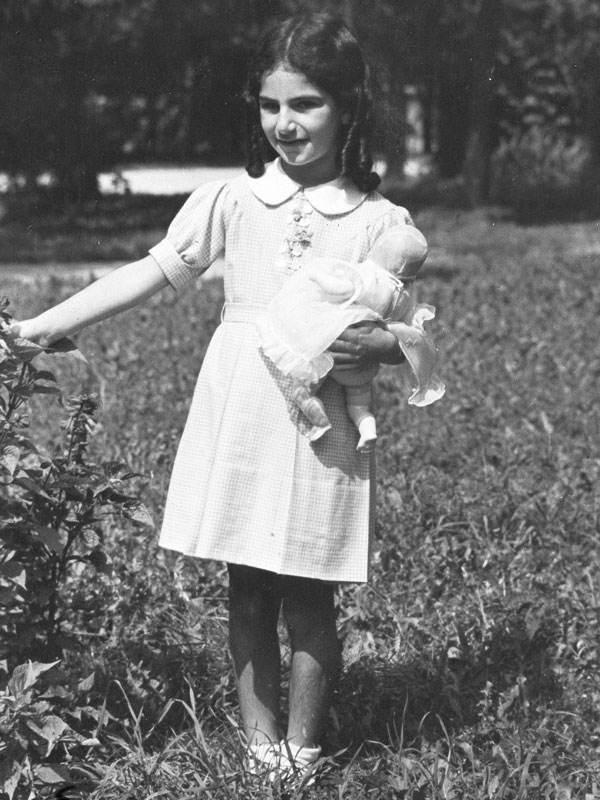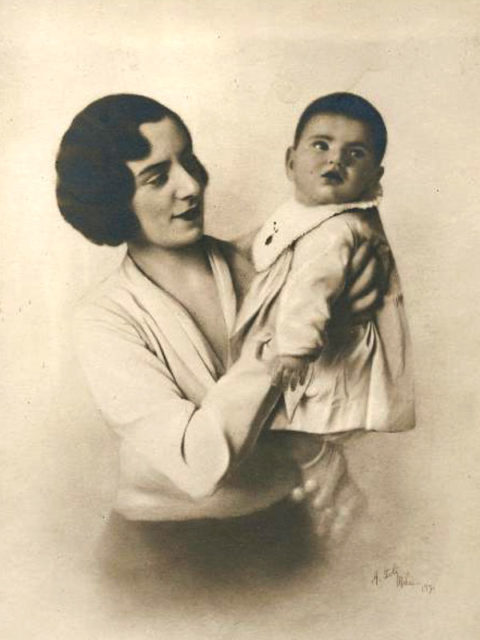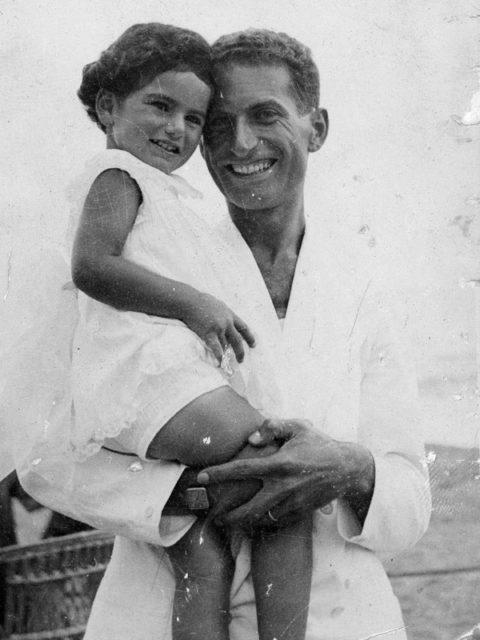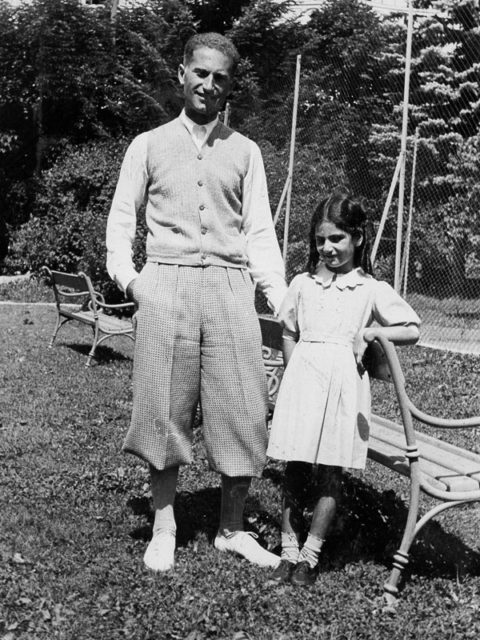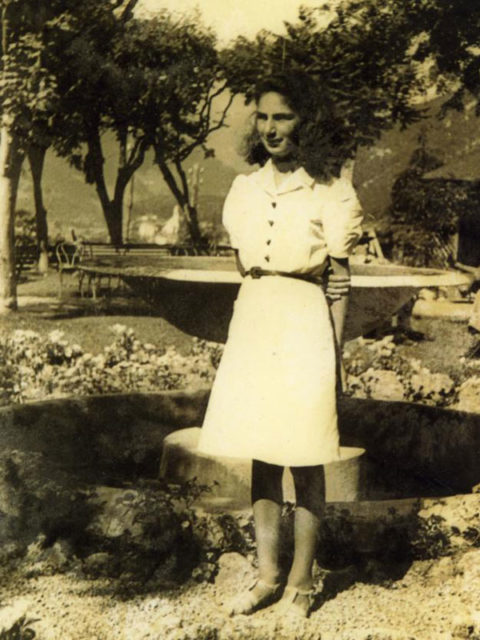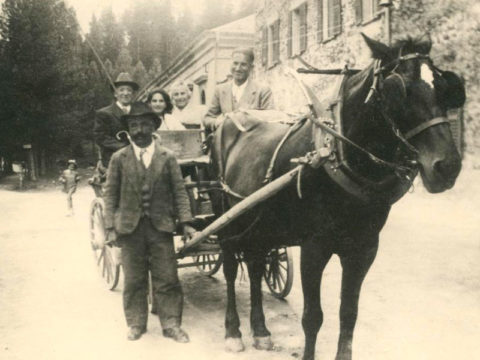Liliana Segre
Testimonies
One of the most respected voices of the Italian memory of the Shoah, Liliana Segre – one of the founders of the Shoah Memorial of Milan – relates with exceptional lucidity her experience as a young Jewish girl who was deported to Auschwitz when she was thirteen years old.
Liliana was liberated on 1 May 1945 from the Malchow camp, a sub-camp of the Ravensbrück camp. Of the 776 Italian children who were less than 14 years old when they were deported to Auschwitz, Liliana is one of the twenty-five who survived.
Together with her father and grandparents, Liliana attempted to hide and then to escape to Switzerland on 8 September 1943, the day that Italy surrendered to the Allies. They were captured at the border and suffered the humiliation of prison before being deported to Auschwitz-Birkenau, where she found herself alone to face the horrors of the death camp and forced labour. Surviving Auschwitz and the ensuing death march, she was the only member of her family to return to Milan.
After the Nazi horror, she lived with her maternal grandparents, originally from Marche, the only survivors from her family. In 1948 she met Alfredo Belli Paci, a Catholic, he too having been imprisoned in the Nazi concentration camps for having refused allegiance to the Italian Social Republic. They were married in 1951 and have three children.
For many years, Liliana did not want to talk about her experiences publicly. She decided to break her silence in the early 1990s and since then has taken part in dozens of school assemblies and conferences of all types to tell her story to young people, in honour of the millions of others who shared much of it but did not live to tell their stories.
IL VIAGGIO
by Liliana Segre
During the last days of January, the fifth cellblock in San Vittore Prison filled with Jews coming in from all over Italy; there were about seven hundred of us.
[…] At a certain point, I think it was afternoon, a German came into the cellblock and read the names of those who were to leave the following day for an unspecified destination. There were some 600 names, it went on and on. […]
We all got ready to leave; they distributed paper baskets with seven portions of crackers, seven portions of mortadella, seven portions of condensed milk. Why seven? Why seven? How could I look at my Father? How could I ask him why this was happening to us?
I kept silent in those final hours in San Vittore; but every now and then I strayed off, running like mad all the way to the top floor where the large group cells were to see all those people I didn’t know who were getting ready to leave, all in the same way. It was the preannounced deportation. I was part of it too, my Father’s princess.
The next morning, 30 January 1944, a long line of silent, suffering people filed out of the fifth cellblock into the prison yard.
We walked through another cellblock filled with common criminals. They leaned out over the railings and threw oranges, apples, biscuits down to us; but most of all, they shouted words of encouragement, solidarity and blessing! They were incredible; they were men who, seeing others going to their slaughter for the simple reason that they were born of one womb instead of another, felt pity.
It was our last contact with human beings. We were then loaded brutally onto the trucks. We drove through the deserted city. At the intersection with Via Carducci, I caught a glimpse of my home at Corso Magenta number 55 just before it was cut off by the corner of the tarp: for the last time, for the last time. When we got to the Central Station, the convoy of trucks drove into the cavernous sublevel from the Via Ferrante Aporti tunnel; we were unloaded next to the sidings that are still there in the bowels of the station.
It all happened so quickly.
The SS and RSI police wasted no time: with feet, fists and truncheons they herded us into the livestock cars. As soon as the car was filled, the doors were bolted shut and the car was lifted in an elevator up to the departure platform.
It was not until they started joining the cars together that any of us grasped what was happening. Everything had taken place in the darkness of the sublevels, illuminated with powerful spotlights only in strategic points, amidst shouts, barking dogs, whistles and terrifying brutality.
It was dark in the car, there was a bit of straw on the floor and a bucket for our needs. The train started moving and seemed to be headed south. It went very slowly, stopping for hours.
Through the grates we saw the countryside of Emilia in the winter mist and deserted stations with familiar names. The adults appeared somewhat relieved that the train was not directed towards the border. But in the evening the train switched direction and no one could sleep. Everyone was crying, no one could accept the fact that we were heading north, towards Austria; the sound of the wheels was drowned out by a chorus of sobbing.
A chorus of shouts, calls and pleas issued from the sealed cars: no one listened. The train started off again. The car was cold and fetid, the stench of urine, grey faces, stiffened limbs; we had no room to move. The crying subsided into total desperation.
I wasn’t hungry. I wasn’t thirsty. I fell into a sort of delirium and couldn’t eat, like when you have a high fever. When I managed to think back, I imagined that without me, my Father might have been able to escape from San Vittore, jump over the wall like another detainee, Peppino Levi, had suggested. Or perhaps not. I hugged him tightly. He was devastated, pale, with the reddened eyes of someone who hadn’t slept for days. He begged me to eat something. He still had a sliver of chocolate for me; I put it in my mouth just to make him happy, but I couldn’t swallow anything.
A prayer group formed in the centre of the car: several pious men – I remember Signor Silvera among them – rocked back and forth for a long time reciting the Psalms. They seemed to go on forever; they were the lucky ones. The hours went by, days and nights went by, in total listlessness: it was difficult to mark time. Only a few still had a watch but even those privileged ones had given up checking the time. Every now and then I saw someone get up stiffly to try to figure out where we were, peering through the grate, plugged with rags to keep the cold away from the human cargo. We saw a landscape immersed in snow, small beckoning houses, smoking chimneys, bell towers…
The train stopped as we were entering the Black Forest and some were able to get off to get a bit of water and empty the foul bucket, surrounded by SS guards armed to the teeth.
My Father and I also got off and for the first time saw the words written on the car: “Auschwitz bei Katowice”. We suddenly knew where we were going. The train started again almost immediately and the news of our destination plunged everyone into a state of silent desperation. All in the car was silent on those last days. No one cried anymore, no one complained. Everyone held silent with the dignity and awareness of those facing their final moments. Most of us were on the eve of our death. There was nothing more to say. We hugged our loved ones and gave them our love as a final good-bye. It was the essential silence of the decisive moments in each person’s life.
And then, and then, and it was Auschwitz and the deafening obscene clamour of the murderers all around us.
VIDEOS (ITA lang)
- Liliana Segre, testimony taken from: Viaggio nella Memoria - La Shoah nelle testimonianze di Goti Bauer e Liliana Segre, Associazione Figli della Shoah and Bongiorno Production, Milan 2006 – Part 2
- Part 3
- Part 4
- Part 5
- Liliana Segre racconta (literally, 'Liliana Segre speaks'), Proedi Editore
- Liliana Segre speaks - Turin, May 12, 2016
- Dario Picciau, Roberto Malini with testimony and interpretation by Liliana Segre, Binario 21, Proedi Editore, Milan (Italy) 2006
- Liliana Segre and the Holocaust: story of Janine
- Liliana Segre, Indifference - 26th February 2016
DOCUMENTS
PHOTO GALLERY
BIBLIOGRAPHY
Daniela Padoan: Come una rana d’inverno, Milano, Bompiani 2004
Emanuela Zuccalà: Sopravvissuta ad Auschwitz. Liliana Segre fra le ultime testimoni della Shoah, Milano: Paoline Editoriale Libri 2005
Sara Fantini, Notizie dalla Shoah – La stampa italiana nel 1945, prefazione di Liliana Segre, Edizioni Pendragon, Bologna 2005
Alberto e Liliana Segre, testimonianza tratta da: AAVV, Viaggio nella Memoria – Binario 21, catalogo della mostra a cura dell’Associazione Figli della Shoah, Proedi Editore, Milano 2006, 2013, pp. 86-89
Daniela Palumbo, Liliana Segre, Fino a quando la mia stella brillerà, Piemme, Il Battello a Vapore, Milano 2015
Enrico Mentana, Liliana Segre: La memoria rende liberi, Rizzoli, Milano 2015

